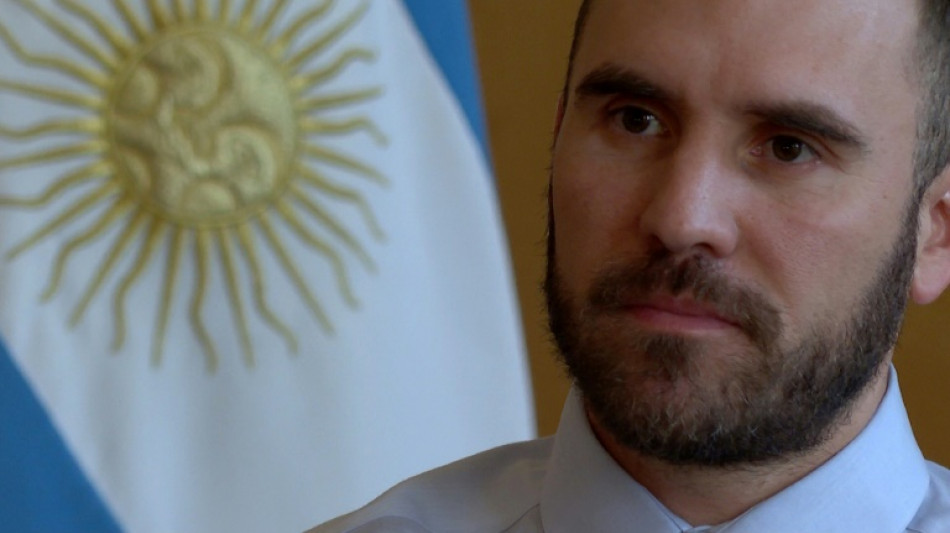
-
 Strasbourg coach Rosenior meeting with Chelsea chiefs - reports
Strasbourg coach Rosenior meeting with Chelsea chiefs - reports
-
'That's enough': Greenland PM urges Trump to drop annex threats

-
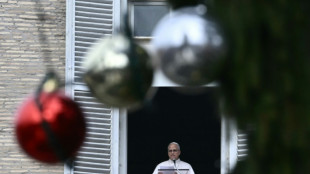 'Two-pope' Catholic Jubilee draws 33 million pilgrims to Rome
'Two-pope' Catholic Jubilee draws 33 million pilgrims to Rome
-
Three hurt in polar bear attack in remote Siberian village

-
 Virtual museum preserves Sudan's plundered heritage
Virtual museum preserves Sudan's plundered heritage
-
Dakar bike champion Sanders wins second stage to take lead

-
 Maduro arrives for first US court appearance after capture
Maduro arrives for first US court appearance after capture
-
How Ruben Amorim's Man Utd reign turned sour

-
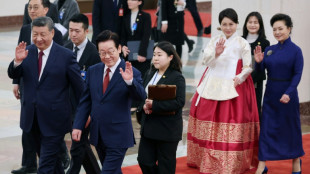 Xi urges South Korea's Lee to make 'right choices' in turbulent world
Xi urges South Korea's Lee to make 'right choices' in turbulent world
-
Medvedev renews call for early nights at Australian Open

-
 EU says 'seriously looking' into Musk's Grok AI over sexual deepfakes of minors
EU says 'seriously looking' into Musk's Grok AI over sexual deepfakes of minors
-
German renewable energy shift slowed in 2025
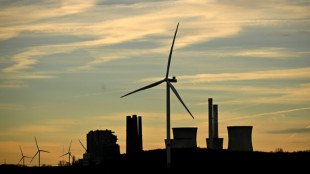
-
 Medvedev in great touch as he starts 2026 with Brisbane cruise
Medvedev in great touch as he starts 2026 with Brisbane cruise
-
French court jails one in Brigitte Macron cyber-bullying trial

-
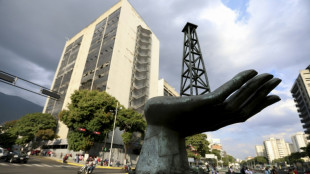 Oil prices ease as investors track Venezuela fallout
Oil prices ease as investors track Venezuela fallout
-
Patient killed in Russian strike on Kyiv clinic

-
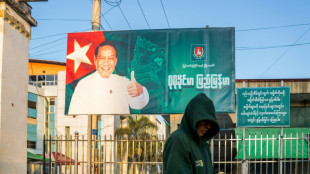 Myanmar pro-military party wins first phase of junta-run election: official results
Myanmar pro-military party wins first phase of junta-run election: official results
-
Double Olympic champion Chebet takes maternity break in 2026

-
 Amorim sacked by Man Utd after 14-month reign
Amorim sacked by Man Utd after 14-month reign
-
Maduro due for first US court hearing after capture

-
 Manchester United sack manager Ruben Amorim
Manchester United sack manager Ruben Amorim
-
Bangladesh says at least 287 killed during Hasina-era abductions
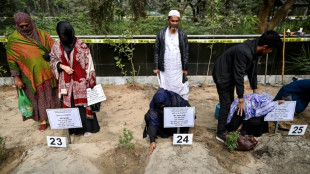
-
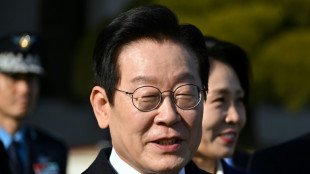 South Korea's Lee meets Xi with trade, Pyongyang on the agenda
South Korea's Lee meets Xi with trade, Pyongyang on the agenda
-
Gauff shocked in United Cup, comeback kid Hurkacz stuns Zverev

-
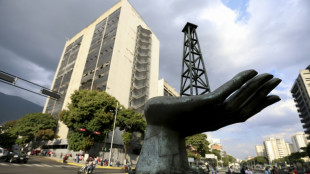 Tech firms lead markets higher, oil swings after Maduro ouster
Tech firms lead markets higher, oil swings after Maduro ouster
-
Defending Brisbane champion Lehecka wins tough opener

-
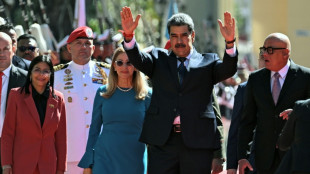 Maduro's fall tests Venezuela's ruling 'club'
Maduro's fall tests Venezuela's ruling 'club'
-
'I can't walk anymore': Afghans freeze to death on route to Iran

-
 UK starts ban on junk food ads on daytime TV and online
UK starts ban on junk food ads on daytime TV and online
-
Trump declares US 'in charge' of Venezuela and Maduro goes to court

-
 Two killed in series of Russian attacks on Ukraine
Two killed in series of Russian attacks on Ukraine
-
Kasatkina feels pressure to 'repay Australia' after Russia switch

-
 Suns stun NBA-best Thunder as East-leading Pistons top Cavs
Suns stun NBA-best Thunder as East-leading Pistons top Cavs
-
China's birth-rate push sputters as couples stay child-free

-
 'Not about condoms': Chinese shrug off contraceptive tax
'Not about condoms': Chinese shrug off contraceptive tax
-
Root's majestic 160 powers England to 384 in final Ashes Test

-
 Chalamet boosts Oscar bid with Critics Choice Awards win
Chalamet boosts Oscar bid with Critics Choice Awards win
-
'Tuna King' pays record $3.2 mn for bluefin at Tokyo auction

-
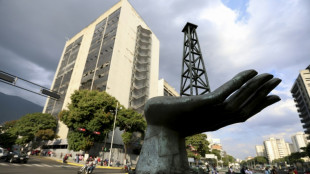 Tech firms lead Asian markets higher, oil swings after Maduro ouster
Tech firms lead Asian markets higher, oil swings after Maduro ouster
-
Cricket Australia boss hits out at 'archaic' bad light rules

-
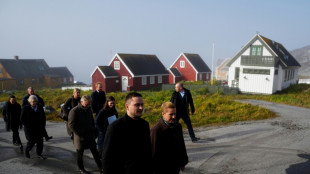 Trump insists 'we need Greenland'
Trump insists 'we need Greenland'
-
Century-maker Root steers England to 336-6 in final Ashes Test

-
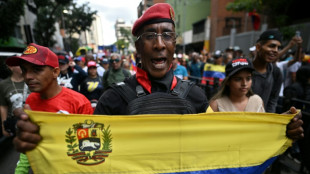 'Free our president', Maduro supporters demand at rally
'Free our president', Maduro supporters demand at rally
-
Danish PM calls on US to stop 'threatening' Greenland
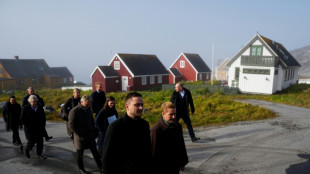
-
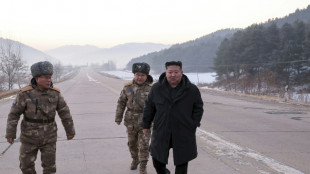 North Korea tests hypersonic missiles, says nuclear forces ready for war
North Korea tests hypersonic missiles, says nuclear forces ready for war
-
Root in Ponting territory with 41st Test century at 5th Ashes Test

-
 American Power Group Closes $650,000 Private Placement with Its Largest Shareholder
American Power Group Closes $650,000 Private Placement with Its Largest Shareholder
-
Swiss Academy for Leadership and Sustainability Launches Swiss Standards in Recruitment Accreditation Program

-
 The IRS/SSA Begins Accepting 1099, W-2, and 94x for 2025 Tax Year Monday, January 5, 2026
The IRS/SSA Begins Accepting 1099, W-2, and 94x for 2025 Tax Year Monday, January 5, 2026
-
Optex Systems Announces Brian Bushnell as Director of Optical Coatings Technology


IMF risks losing legitimacy over Argentina loan: minister
Argentina's economy minister, renegotiating a massive loan with the International Monetary Fund, warned the lender risked losing credibility if it "pushes" the country "into a destabilizing situation."
Argentina has received $44 billion of a $57 billion loan the lender itself said last month had failed to achieve its objectives of restoring confidence in the country's fiscal viability and fostering economic growth.
Latin America's third-largest economy has been in recession since 2018 and is seeking to renegotiate its down payment plan, with amounts of $19 billion and $20 billion due in 2022 and 2023.
The country registered GDP growth of 10 percent in 2021 after a drop of 9.9 percent the previous year largely due to the coronavirus pandemic.
Guzman, in an interview with AFP, said the repayment calendar was "unsustainable" for a country battling a poverty rate of some 40 percent and one of the highest inflation rates in the world at 50 percent.
The government of center-left President Alberto Fernandez, who refused to accept the last $13 billion of the IMF's biggest-ever loan arranged in 2018 under his conservative predecessor Mauricio Macri, is seeking a deal that will reduce Argentina's fiscal deficit through economic growth, not reduced public spending.
Here is what the minister said:
Q: How do you see 2022 unfolding? Is there a risk of a default?
A: Argentina has a very high trade surplus, which is at the highest levels we have achieved. It was over $15 billion in 2021. What is the balance of payments problem facing Argentina in 2022? It is precisely the debt with the IMF. And that is why it is important to refinance it.
It is important for the country and also for the IMF.
If the IMF pushes Argentina into a destabilizing situation, it will also have less legitimacy in the future when other countries require multilateralism in order to solve their problems with the international community.
If we want to protect each other and protect the workings of multilateralism, it is important to agree on something that is credible. And credible means implementable.
We have a set of economic and social objectives, and of course we want to deliver on our commitments, but we need time. We need to be able to refinance these debts.
We need not, for that time, to be burdened with a conditionality that stops recovery and inhibits Argentina's capacity for development in the medium and long term.
Q: Are you expecting support from the United States as the IMF's biggest shareholder? What do you make of the call by Democratic lawmakers to US Treasury Secretary Janet Yellen to back a review of IMF surcharges on larger, outstanding loans, especially at a time that countries need additional resources to fight the pandemic?
A: That was an important request to the Secretary of the Treasury of the United States to support in the IMF board a review of this policy, which harms countries in crisis that have what is called "exceptional access to the International Monetary Fund."
They are charged more when the situation is worse. That... does not help to fulfil the Fund's mission of ensuring global financial stability. Countries with these interest surcharges lose resources with which to carry out the investments needed to improve repayment capacity.
Q: Where does the disagreement lie?
A: There is nearly agreement on where to converge; what is the primary fiscal outcome (before the payment of interest).
The disagreement lies in the speed (of repayment) and this has to do with differing objectives.
In 2021, with an economy growing at 10 percent, the primary fiscal deficit fell by 3.5 percent of GDP. The fiscal deficit in 2021 was between 2.9 percent and 3.0 percent of GDP -- the figure will be known on January 20. It is a strong decline. Good fiscal consolidation is taking place.
What the IMF has put forward is that there must be faster fiscal consolidation.
But there are two problems: the first is that how they propose it be done would halt economic recovery in the short term. The second is that... it would focus on a smaller expansion of investment in public infrastructure. For us this is critical, because that investment is what Argentina needs most, from a productive point of view. That is where the tension lies.
Q: You have made reference to the difference between a perfect agreement and an acceptable one. Are you getting closer to an acceptable deal?
A: There is no perfect agreement...
What we are looking for is to move forward rather than backward. I'd say we are a little better than we were a week ago, but there is a long road ahead. The frequency (of contacts with the IMF) is not only daily, but several times a day.
J.Williams--AMWN
